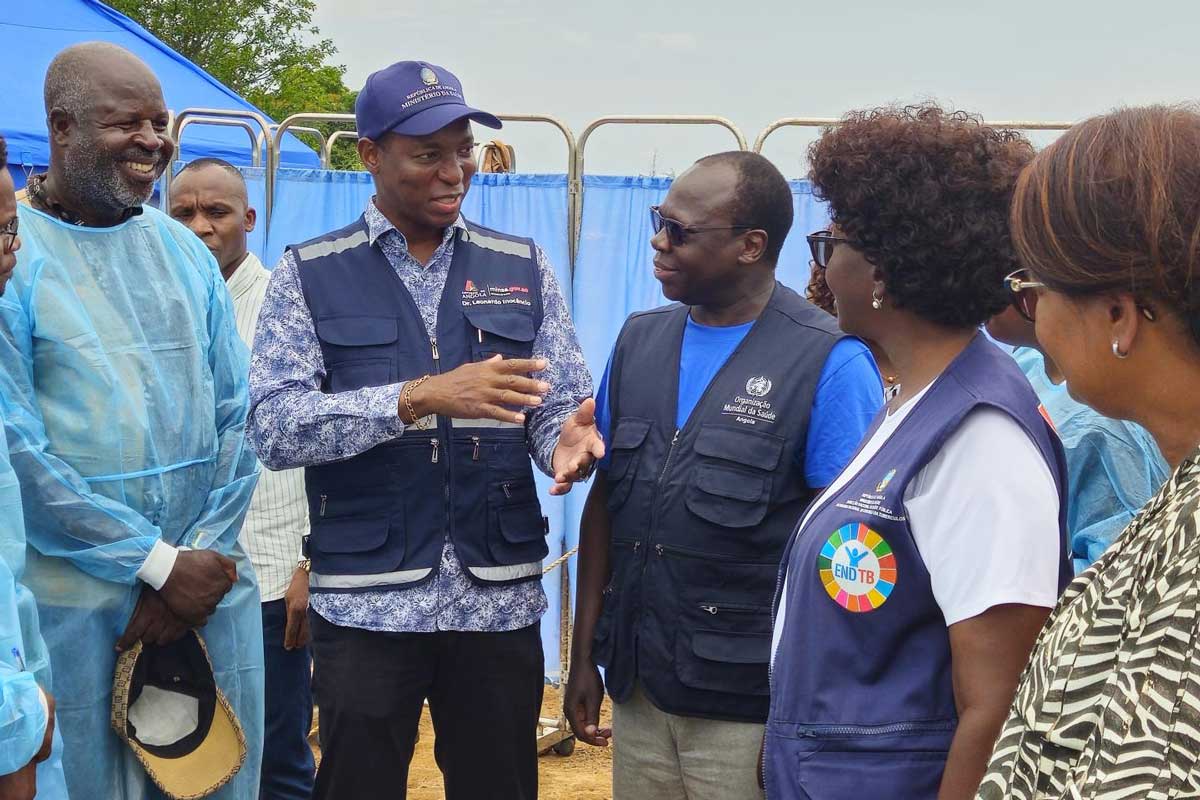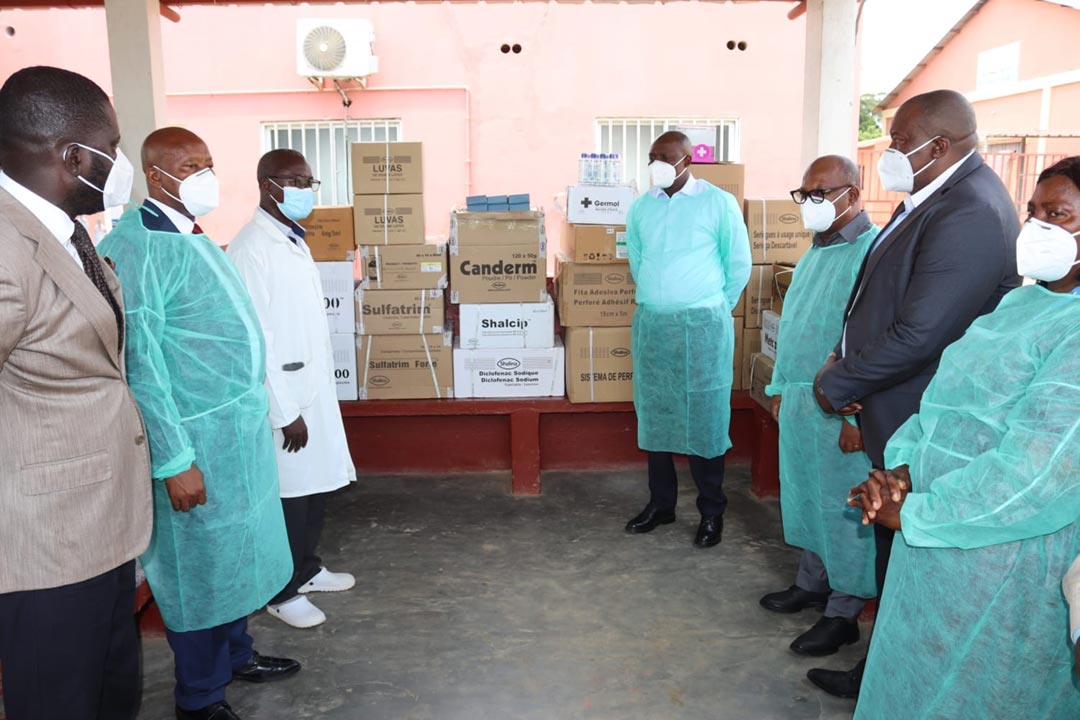Angola launches historic HPV vaccination effort
In the ten-day first phase of the game-changing campaign, Angola aimed to protect at least 1.3 million of the country’s eligible girls.
- 18 November 2025
- 7 min read
- by Gaspar Micolo
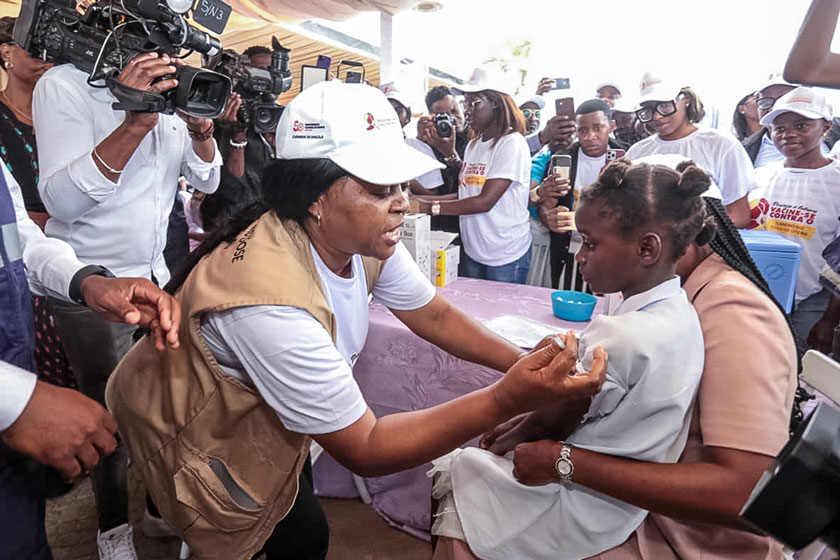
Early on the morning of 27 October 2025, an atmosphere of anticipation filled the Hélder Albuquerque School Complex No. 173, in Moçâmedes, Namibe province of Angola. It was there that the First Lady of the Republic, Ana Dias Lourenço, would preside the launch of the country’s first-ever National Cervical Cancer Vaccination Campaign – a long-awaited initiative.
Health teams, teachers, parents and students gathered to listen as the First Lady, a vocal ambassador for the campaign, described the moment as “a historic step for Angola, symbolising the State’s determination to care for its girls and future women, ensuring them a healthy and prosperous future”.
Coordinated by the Ministry of Health (MINSA) and supported by partners such as the World Health Organization (WHO), UNDP, UNICEF, GAVI, and the European Investment Bank (EIB), the campaign has the ambitious goal of vaccinating a total of 2.2 million girls aged 9 to 12 across the country. The first phase focussed on the approximately 1.3 million school-going girls in that age-bracket. A second phase geared at reaching out-of-school girls is anticipated to kick off in December, after which the vaccine will be integrated into the routine immunisation system.
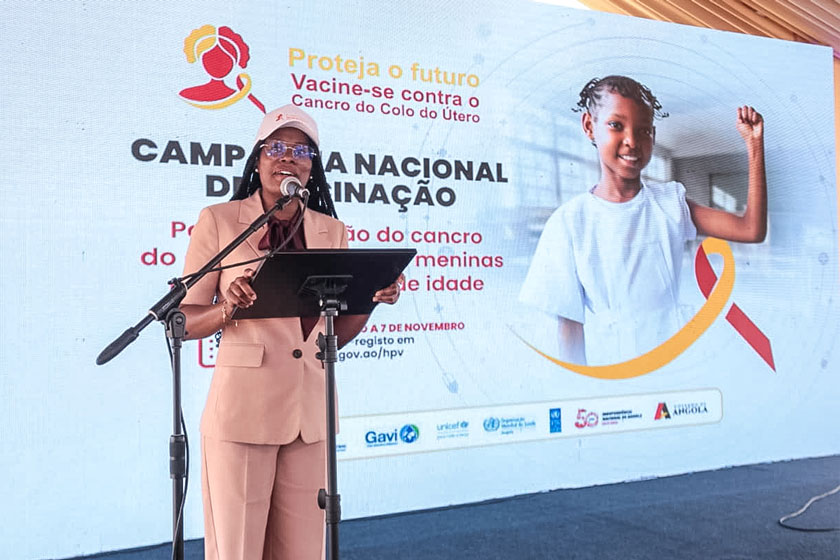
In the last days of October, 1,667 teams from the Expanded Programme on Immunization (EPI) sprang to work, visiting schools, health units, and communities, with the goal of reaching at least 70% of all eligible girls.
“Unprecedented”
The Minister of Health, Sílvia Lutucuta, described the campaign as “an unprecedented joint effort in the history of Angolan public health.” According to the Minister, “we are realising a dream of 16 years of preparation, which involved public institutions, civil society, and the private sector.”
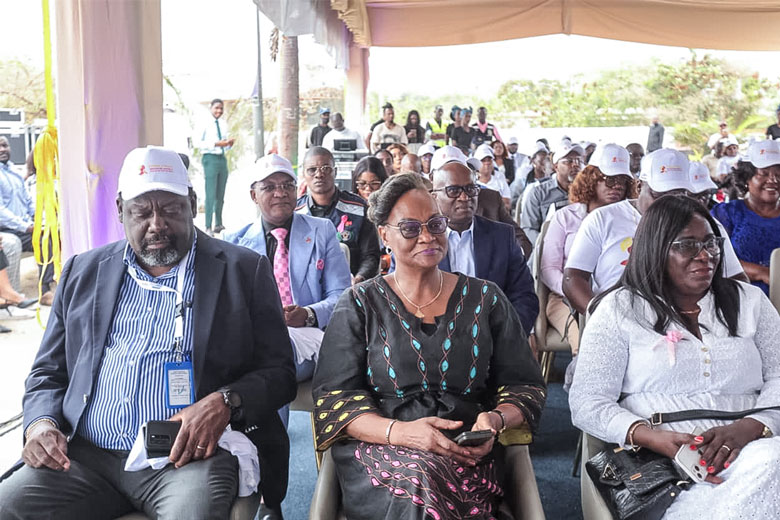
Vaccination against human papillomavirus (HPV) is a critical part of WHO’s tripartite global strategy to eliminate cervical cancer as a public health problem by 2030. If 90% of girls are vaccinated before the age of 15, 70% of women undergo regular screening, and 90% of those diagnosed with the cancer receive appropriate treatment, says WHO, all countries can achieve elimination by that looming deadline.
At the school in Moçâmedes, Sandra Carlos, ten years old, received the vaccine with her mother by her side. “It hurt a little, but Mom said it’s important,” she said. Her mother, Maria Carlos, said she wished she had had the same opportunity as a child. “I saw my mother-in-law dying of cervical cancer. I don’t want the same for my daughter.”
Cases like this explain the urgency. According to data collated by the Global Cancer Observatory, 2,823 new cases of cervical cancer were diagnosed in Angola in 2022 alone, and 1,715 women died with the disease.
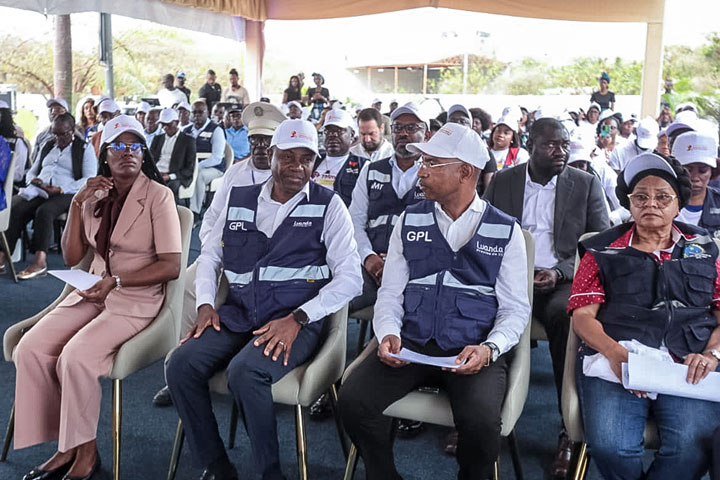
“The most worrying thing is that 80% of cases are detected in advanced stages, when the chances of saving lives decrease drastically,” warns oncologist Fernando Miguel, director of the IACC.
Luanda and the great urban test
As Namibe kicked things off with a bang, the other 21 provinces were also beginning to roll out the jab. The target assigned to health workers in the capital city was particularly hefty: 550,000 girls in Luanda were to be reached by 296 vaccination teams via 100 immunisation posts, spread across schools and markets.
At the Praia Amélia market in the city, one of the students vaccinated that day, 12-year-old Maria Luísa, confessed her initial fear: “My grandmother encouraged me. She said it was for my own good.” At the same location, 42-year-old Ana Cardoso brought her two daughters to get vaccinated. She had lost her sister, who was 34, to cervical cancer. “I watched her wither away for months. When we found out, it was too late. This vaccine is a blessing; no girl should be left out.”
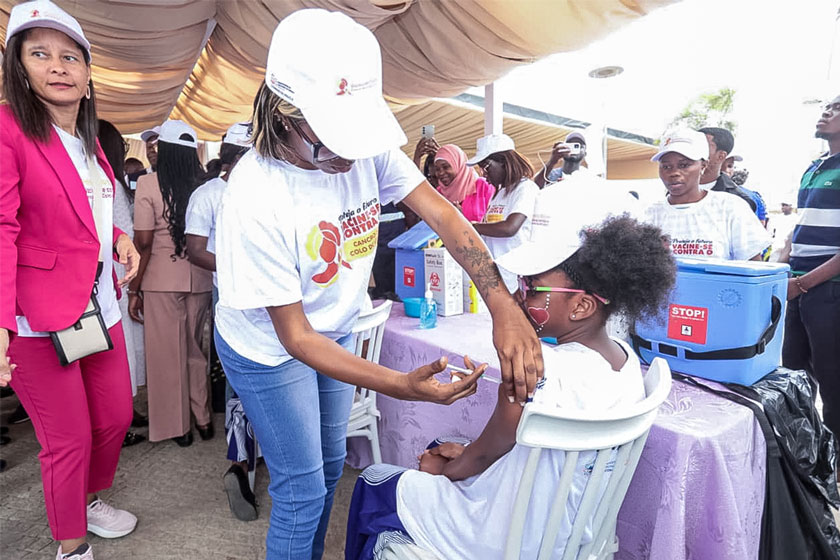
[“I watched [my sister] wither away for months. When we found out, it was too late. This vaccine is a blessing; no girl should be left out.” – Ana Cardoso, mother of two vaccinated girls]
Enthusiasm, and obstacles
In Cuanza Norte province, the vaccination posts in N’dalatando were registering encouraging turnout. 11-year-old student Rosa Almeida Cristóvão shared her experience. “It didn’t hurt at all. The other girls should come too.” Tutor Anita Gaspar Mendes, however, expressed concern about “mothers who discourage their daughters due to lack of information.”
The campaign supervisor in Cazengo, Hélder André, confirmed that “many girls outside the education system sought out vaccination centres spontaneously.”
Have you read?
In the province of Cuando Cubango, the mobilisation extended from urban areas to rural communities, but logistical challenges persisted. “The dispersion of families forces us to travel long distances, and the rainy season complicates access,” explains João Chinhigue, Provincial Director of Health.
First results and extension of the campaign
By November 7, Angola had vaccinated 866,027 girls, equivalent to 39% of the national target, well below the 70% expected. According to Alda de Sousa, coordinator of the EPI, “The data is still provisional, as not all teams have reported results, but we know that it is necessary to extend the campaign.”
The Ministry of Health opted to extend the deadline until November 18 to allow the vaccination of another 280,000 girls, only within the school system. “We aim to achieve at least 80% of the [initial 70%] target, starting with schools and then moving forward.”
%2C%20Sandra%20Batalha%20(JA).jpg)
The National Director of Public Health, Helga Freitas, said that the country has enough doses to allow for this campaign and then to see the vaccine introduced into the national immunisation schedule as soon as January 2026. “Starting next year, all nine-year-old girls will be vaccinated at health centres. Angola has waited 16 years for this moment,” she declared.
Combatting misinformation
Despite the widespread mobilisation efforts and enthusiastic uptake in certain quarters, there was still resistance registered in some rural and peri-urban areas. Myths about infertility, or the ideal age for vaccination, circulated in the communities. In Caxito, a mother asked the nurse if the vaccine could “affect her daughter’s fertility”. The professional calmly replied: “There is no evidence of that. Cecolin is safe and approved by the WHO.”
But to combat rumours at scale, the Public Health Influencer Network was created in partnership between the government, WHO and UNICEF. Representatives of the Network – group of activists and health professionals – travel to schools and community radio stations to spread the word: girls vaccinated today, will be healthy women tomorrow.
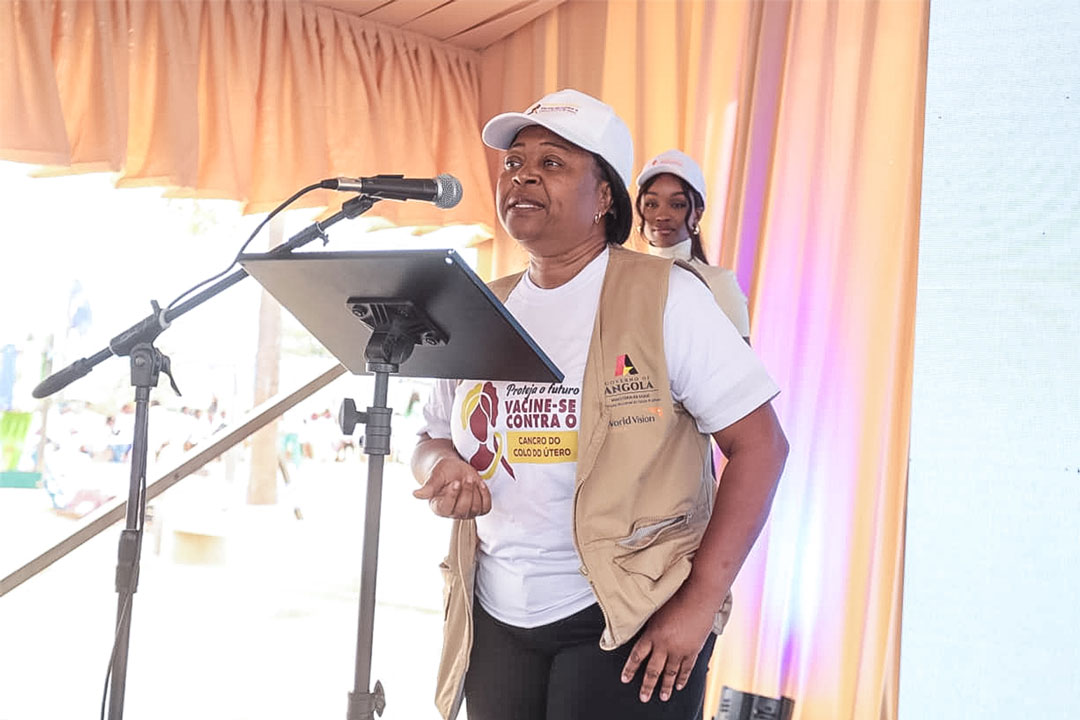
Among those champions is Suzete Carmo, 48, a survivor of uterine cancer. “Many who spread false information have never visited a cancer hospital. If they saw the suffering of women undergoing treatment, they would not hesitate to vaccinate their daughters.”
Obstetrician Eurídice Chongolola, from the Lucrécia Paim Maternity Hospital, reinforces that vaccination is a scientific, not a political, decision. “This measure has a solid epidemiological basis. The country registers more than 2,000 deaths annually from cervical cancer. It is a matter of public health, not ideology.”
A future made possible
For the Secretary of State for Health, Carlos Pinto de Sousa, the results, although short of the initial goal, are encouraging. “We are vaccinating about 100,000 girls a day. It is an acceptable pace, but we want more. This is just the beginning.”
The Angolan government intends to consolidate the campaign with a strategy of routine vaccination and continuous tracking, in addition to regular awareness campaigns. “The important thing is to transform this one-off mobilisation into a culture of prevention,” says Pinto de Sousa.
With vaccines reaching more than 20,000 schools and community centres, Angola is finally beginning to write a new chapter in women’s health. From Namibe to Luanda, from cities to the countryside, the message that echoes is the same: prevention saves lives.
“Vaccinating is an act of love and collective responsibility,” summarised Helga Freitas. “The girls vaccinated today will be the women who beat cancer tomorrow.”

